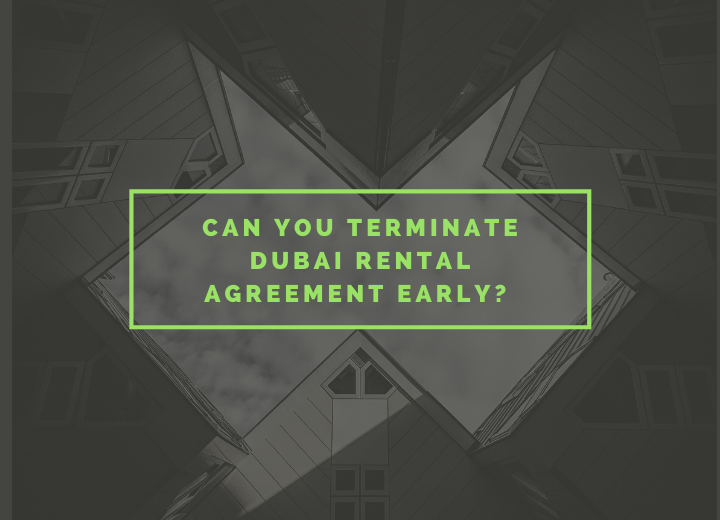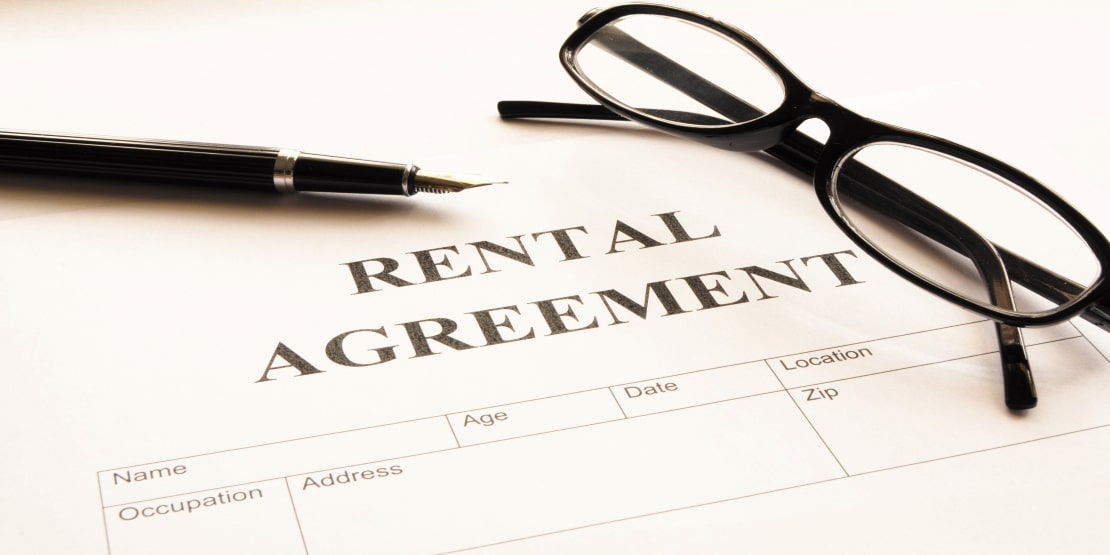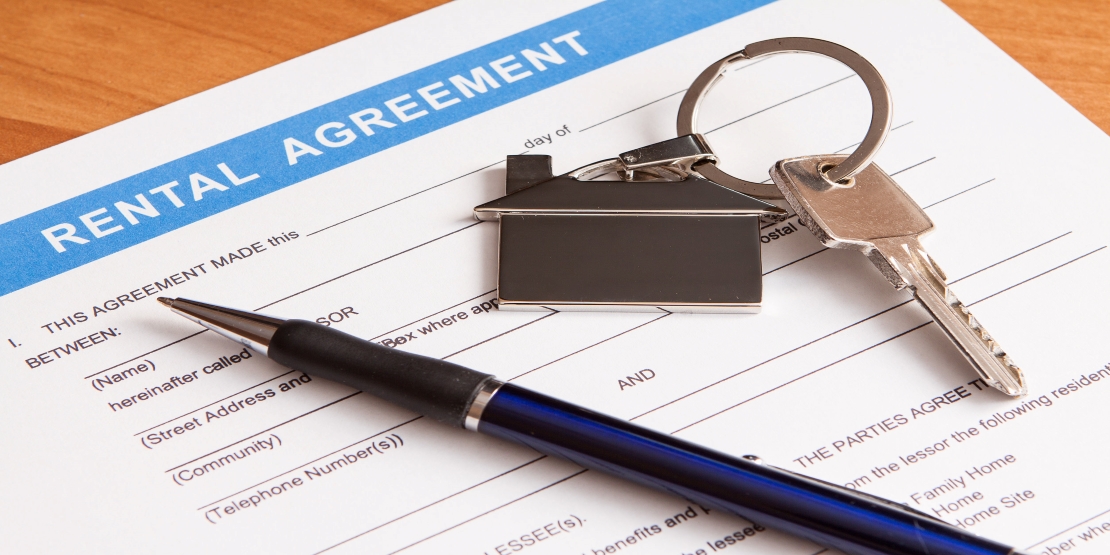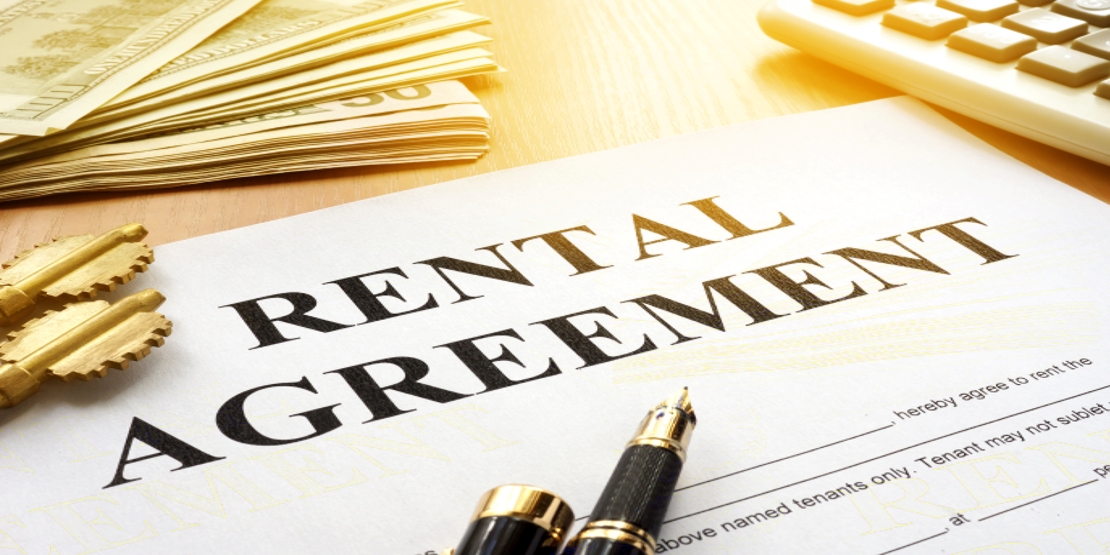Are you considering vacating your apartment before your lease expires? Find out what the law says about terminating a tenancy contract early in Dubai. We will provide an outline of the choices open to renters in Dubai who wish to terminate a tenancy agreement early. We have encapsulated everything about rent rights across Dubai real estate. Know your rights as a tenant before leaving your space before the termination of the rent agreement. To put forward a smoother exit count on the following steps:
Get Familiar with the Dubai Rental Law
Have you made the final decision to move out from the rented home before the lease expires? Give it a second thought, as no provisions are listed under the Dubai tenancy law, allowing the tenant to end the lease agreement earlier than the mentioned date.
As per article 7 mentioned under Law Number 26 – 2007; the rent agreement binds the tenant and landlord in legal terms. This legal document doesn’t allow termination of the agreement by one party. The consent of both parties is a must. Previously, as per the legal tenant law, tenants and landlords had to give a notice period of 90 days to renew the rental contract. However, with the commencement of Law Number 33 – 2008, the 90-day notice period was eliminated. If any of the parties don’t want to renew the contract, they won’t have to put forward a 90-day notice period. With the amendment in the rental law in Dubai, the terms and conditions mentioned within the contract are given more priority. Thus, you need to go through the rent agreement carefully and know your rights before taking such a step.
-
Go Through the Lease Agreement
Now that you’ve familiarise yourself with Dubai rental law go over the lease agreement once more. Check your contract to see if there is a termination clause, or penalties are imposed on the tenant if the contract is broken. If your landlord has not included such a clause in your lease agreement, you are not bound by any law and can easily get out of it. All you have to do now is discuss your plans with your landlord. have you thought about what you’ll say to your landlord. The goal is to work out a deal with your landlord and get on the same side of the courtroom.
-
Time for Negotiation with The Landlord
Now that you’ve figured out the specifics of your lease agreement, it’s time to meet with your landlord. Have a conversation with them and explain your circumstances, including your legitimate reasons for terminating the lease, why you wish to relocate, and so on.
Negotiate with him and try to develop a mutually beneficial exit strategy. On the other hand, the negotiation will be focused exclusively on the agreement’s clauses. You can also pay the penalty or, if possible, supply a new tenant to compensate for the landlord’s loss.
-
Look for your Replacement as a Tenant
Most landlords will agree to your demands if you offer them another tenant before you go. In such cases, landlords do not pardon the renters since they have a replacement on hand to pay their losses. Nothing could be better if your landlord agrees to your deal. Before you go, start looking for a tenant and give the landlord a replacement and a source of income.
If you can’t locate a replacement, expect to pay a penalty of two-month rent before you depart.
-
Things to Consider Before Breaking a Lease Agreement in Dubai
Before breaking a rent agreement in Dubai, tenants know your rights and the following postulates:
-
- Article 15 of Law Number 33 – 2008 states that the landlord must offer a rental property in undamaged condition. The landlord should put forward all possible measures to offer the rented property flawless conditions to the tenant.
- Rental payments must be made via post-dated cheques. Tenants are supposed to submit the same to the landlord. However, if the landlord does not want to receive the payments through cheques, the tenant will have to deposit the same to the Dubai Rental Dispute Settlement Centre. The department will take care of the further procedure.
- The standard size of a lease contract is one page. However, the involved parties can add an addendum for including additional clauses in the lease contract.
Note : It is recommended to read the enlisted clauses carefully if you don’t want to face later stage hurdles and penalties. In addition, it will let you know about the rent increment annually.
What to Do When Lease Agreement Ends?
According to Article 6 of Law Number 26 – 2007, a tenant may remain in the rental property after the term has expired with the landlord’s permission. The agreement will be for a year or the current term. Article 13 of Law Number 33 – 2008 states if involved parties wish to change the contract terms or revise the rent to extend the agreement, they must do so before the previous agreement expires. If they are unable to reach an agreement term, the Tribunal will fix the rent using the criteria outlined in Article 9 of Law Number 33 – 2008, which include the following:
-
- The RERA officials will determine the increased rent percentage.
- The economic conditions will be taken into consideration.
- Property condition.
- Average rental charges applicable for similar property across the rental market.
Can a Landlord End a Lease Agreement and Evict the Tenant?
As per Article 25 enlisted in the RERA tenancy Law Number 33 – 2008, landlords can demand the tenant’s early termination if required. If you don’t want to get evicted anytime, know your rights along with the specific cases that can put forward such a case scenario.
-
- If the lessee fails to make rental payments on time and fails to do so for the next 30 days, the landlord can ask for eviction or penalty as per the mentioned clauses. Whatever is mentioned within the enclosed agreement.
- If the lessee brings a subtenant without the landlord’s written approval.
- If the tenant or his acquaintances use the rented property for immoral or illegal activities.
- If the lessee damages the rented property and makes changes that endanger the property safety.
- When the leased property is used for another purpose apart from the one mentioned within the agreement.
- The landlord can ask for the eviction if the lessee fails to follow the enlisted clauses or rental law.
- When the property condition is not good and can even collapse.
- If the officials demand the property demolition or property reconstruction.
- If the rented property is commercial, the landlord can ask for the eviction if the business remained closed for more than 30 days or even ninety consecutive days. There has to be a valid reason else the tenant will be evicted.
In all the aforementioned case scenarios, the landlord can ask the tenant to leave. Although, the landlord is supposed to notify the tenant about the same through registered mail or via Notary Public. Take the recommendations mentioned above into account and know your rights while making your final decision. It will help you deal with the renter more effectively and without incurring any further penalties or legal action.
Some More Useful Articles for You :
| Real Estate Laws in Dubai | No Commission Rent in Dubai |
| Invest in a Property in Dubai | How Can Indian Buy Property in Dubai |







